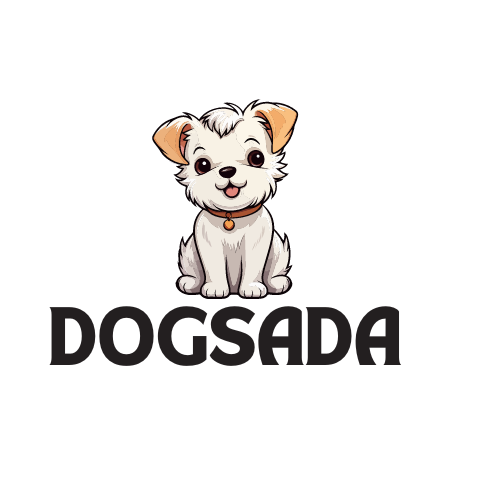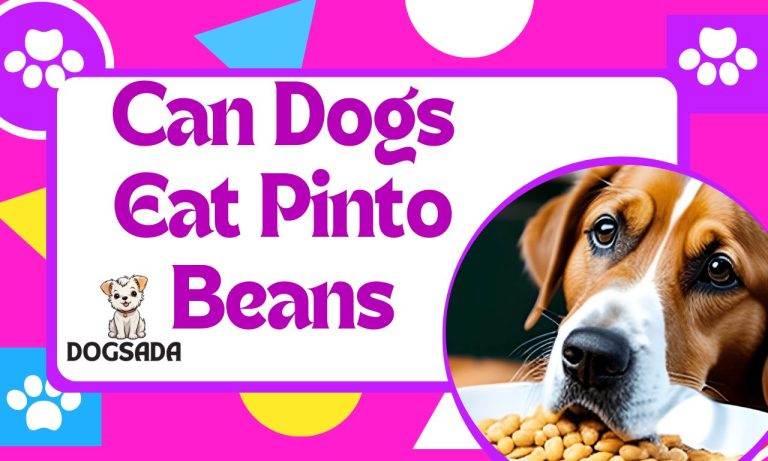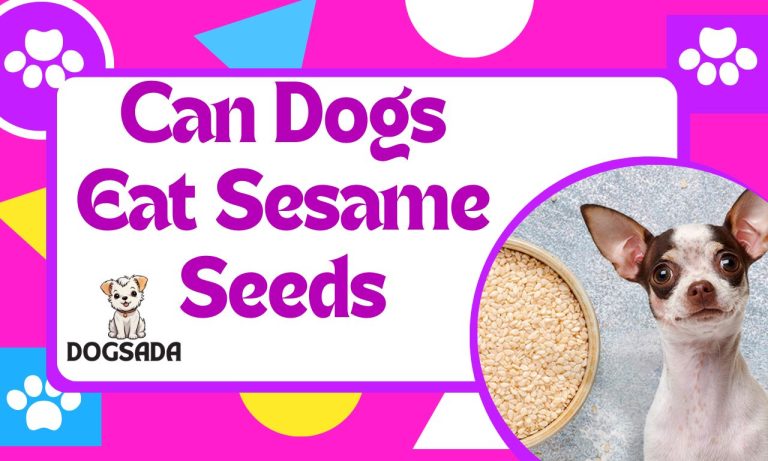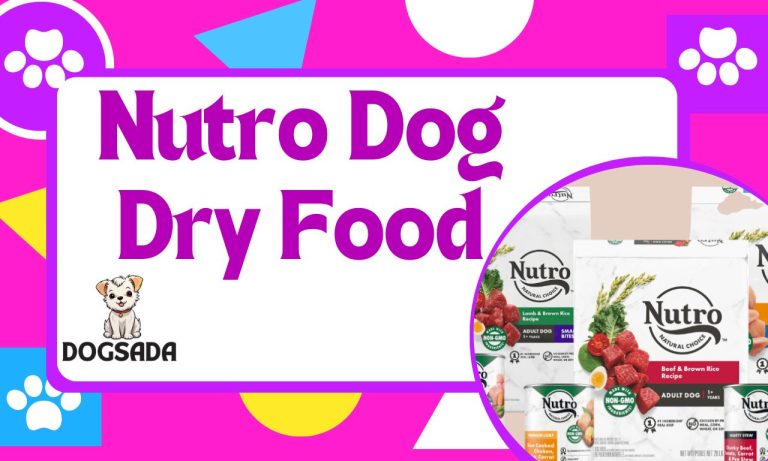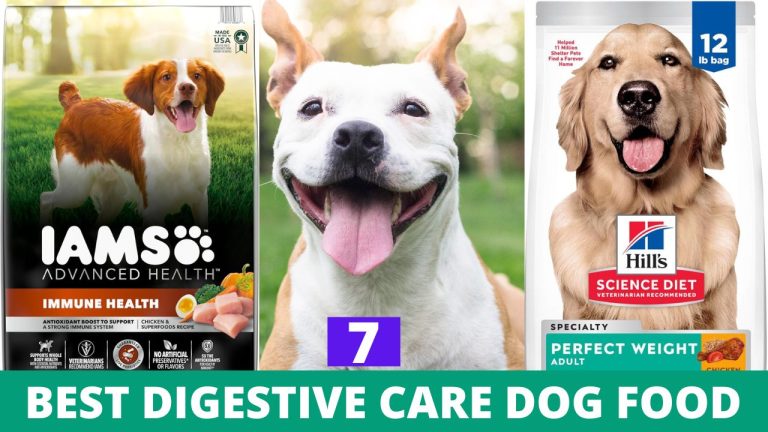In this blog post CAN DOGS EAT BANANA BREAD, Wondering if dogs can eat banana bread or not? Or have you fed your dog banana bread and don’t know what to do? Well, look no further! We have got all the details regarding whether or not you should be feeding your dog banana bread. Read now to find out!

What is Banana Bread?
As the name indicates banana bread is made up of flour, sugar, salt, eggs, butter, and most importantly banana. In some recipes walnuts, almonds, and even raisins are added to enhance flavor. Banana bread can certainly be a healthy part of a diet but keep in mind this is not a meal but a dessert.
READ ALSO Miniature Goldendoodle: Mini Goldendoodle Complete BEST Breeding Guide
Can Dogs Eat Banana Bread?
A question comes to mind even though bananas are not toxic for dogs then why is banana bread toxic?
This is due to the toxic ingredients used in it. These ingredients might not be toxic to us but it is to these dogs.
The toxic ingredient we will discuss in detail below but for now let’s name a few. These include Nuts such as walnuts and almonds, Raisins, and even sugar,
Dogs having allergies to grains should avoid such types of breads.
Bananas are great for dogs because they contain really great nutrients and vitamins which are great for your dog’s health.
Keep in mind Bananas are also high in sugar and should be given as treats occasionally. Too much sugar can cause weight gain and even cause an upset stomach.
Health Risks of Banana Bread
Banana bread can cause various health risks. We have narrowed down the important aspects of it
- Toxic Ingredients: These breads contain ingredients that are toxic to dogs hence should not be given to them. We will discuss these ingredients in detail below this heading.
- High-fat content: High-fat ingredients can cause your dog to suffer from liver failure and a sudden drop in glucose levels.
- High Sugar Content: It can cause your dog to become obese and cause diabetes too.
How Much Banana Bread Can My Dog Have?
Banana bread should be given as a treat but only a specific type of banana bread. The banana bread which is made up of pure ingredients without nuts and chocolates should be given to your dogs. It should be given occasionally in small quantities.
How healthy is a banana for dogs?
Banana is a high-nutrient fruit that has a great impact on your dog’s health. Bananas contains the following nutrients:
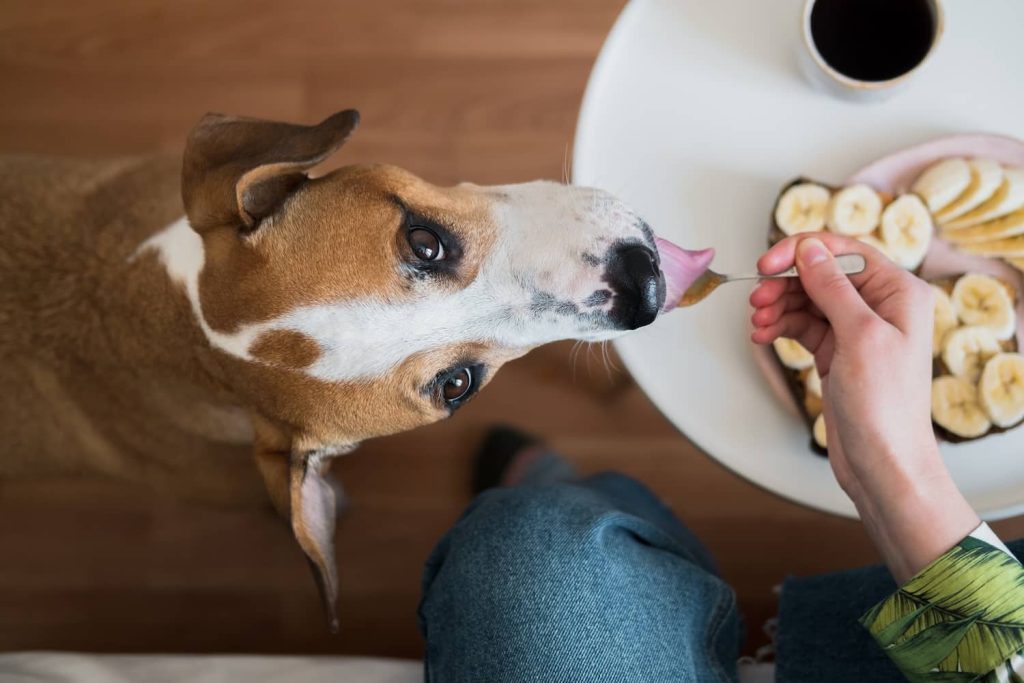
- Potassium: It aids in regulating nerve impulses throughout the body, preventing muscular spasms and water retention.
- Magnesium: It improves neuron and muscle function.
- B6: A vitamin that helps the central nervous system function properly.
- Vitamin C: Although your dog naturally produces vitamin C, giving them an extra dose will support the health of their immune system as a whole.
- Protein: Dogs are high-protein eaters. Banana bread’s plant-based protein nevertheless nourishes them.
Harmful Ingredients for Dogs in Banana Bread
These are some ingredients to look out for when making your banana bread. Make sure to NEVER use them in any dish.
Xylitol:
This ingredient is considered a major dog toxin. If it is consumed even in the slightest amount it causes the blood sugar to drop massively. In other cases, it has been observed to cause liver failure, seizures, and even death in some cases.
Chocolate:
Chocolate is also considered a major NO in dogs’ world as the ingredients in it include theobromine and caffeine which are known as dog poisons. In several cases, it has been seen dogs who consumed bread with chocolate were to suffer from muscle tremors and seizures.
Raisins:
Raisins are a dog poison too as from research and cases seen to have reported kidney failures.
Seeds and Nuts:
Nuts including Macadamia nuts, Black walnuts, Old and moldy walnuts, Raw Cashews, and Pistachios are toxic to dogs.
Seeds including pumpkin seeds, sesame seeds, sunflower seeds, flax seeds, and apple seeds are toxic to dogs.
FAQ
Can dogs eat bananas?
When given in moderation, bananas can indeed be a healthy fruit alternative for dogs. When included in a well-balanced diet, they can offer dogs nutritional advantages since they include important vitamins, minerals, fiber, and antioxidants like potassium and vitamin C.
What possible risks arise from giving dogs banana bread?
Due to popular ingredients in recipes, like added nuts and raisins, which can be toxic to dogs and cause major health problems like kidney failure, banana bread may be dangerous for dogs.
READ ALSO The Ultimate Guide to Golden Shepherd
Why do dogs need to avoid nuts and raisins?
Dogs who consume certain nuts, such as walnuts and raisins, may become poisoned and experience severe health problems, including renal failure.
What is xylitol, and why poses a risk to canines?
Some commercial kinds of banana bread frequently contain the sweetener xylitol, which is extremely harmful to dogs even in small doses. To stop dogs from inadvertently ingesting it, it is essential to be aware that it is present in some goods.
How can dogs be safely given bananas?
With a veterinarian’s approval, you can give dogs plain, peeled bananas as a nutritious snack or include them in homemade dog treat recipes. Because of their high sugar content and the possibility of stomach problems from overindulgence, moderation is key.
How can allergies to bananas in dogs be identified and treated?
When dogs come into contact with allergens such as wheat in banana bread or bananas themselves, they may exhibit symptoms such as redness, gastrointestinal trouble, itching, or respiratory distress. If a possible allergy to bananas is identified, it is imperative to consult a veterinarian for a proper diagnosis and advice on an elimination diet.
Conclusion
If the banana bread is basic and free of toxic ingredients like chocolate or raisins, dogs can eat it. Small quantities that are given seldom are probably not going to hurt kids, but excessive servings are harmful because they are high in calories, fat, and sugar. If your dog is healthy and steals a slice of simple banana bread, it should be all right. However, if you have any worries or believe the banana bread contains any potentially harmful components, call your veterinarian right away.
